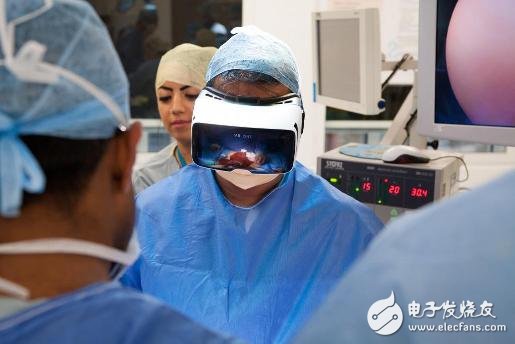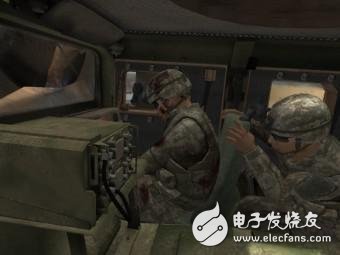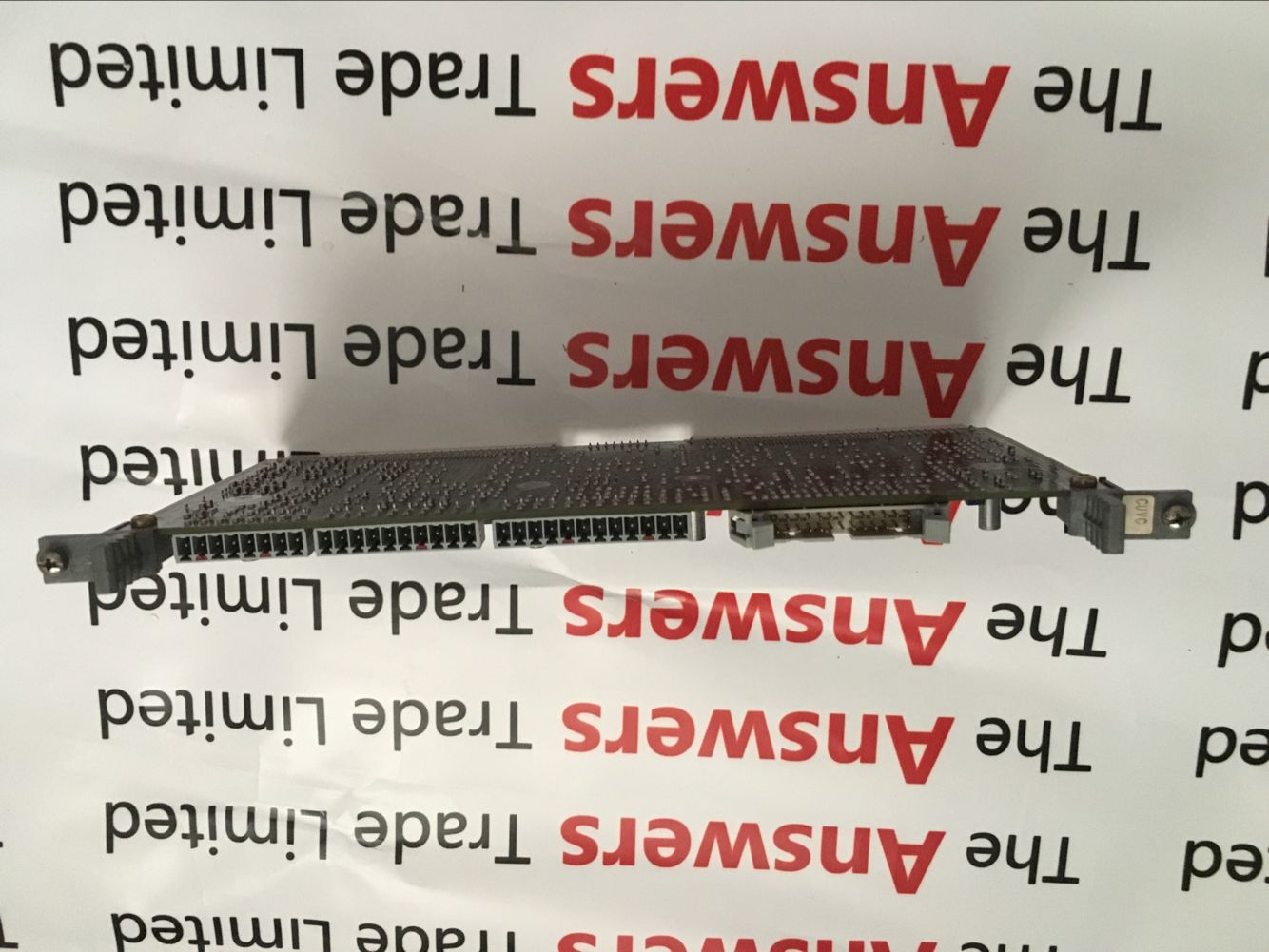For many gamers, virtual reality (abbreviated as VR) devices should not be a strange thing. It is a technology that comprehensively utilizes computer graphics systems and various interface devices in reality to generate interactive immersive environments on computers. VR devices are naturally the gateway to connect virtual worlds with the real world.
However, if you only let VR devices glow in the game world, it would be too wasteful. With the continuous improvement of VR technology and the reduction of cost, it has become increasingly possible to use VR equipment in the field of healthcare. Let’s take a look at the following news.
Not long ago, a four-month-old Teegan Lexcen faced a terrible condition. She was born with only one lung and half a heart. The doctors of the little girl’s hometown of Minnesota have nothing to do with it.
The pediatric surgeon at Nicklaus Children's Hospital scanned the heart and lungs of Little Teegan with a computer and uploaded the photos to a smartphone. Then I used the Google Cardboard carton glasses to observe the 3D image of her weakly careful lungs. Through a clear image seen on Google Cardboard, doctors performed a seven-hour life-saving operation for Little Teegan. “VR has saved my daughter’s life, which is extraordinary,†said Teegan’s mother, Cassidy Lexcen.
In fact, VR technology has already had many applications in the field of medical and health. Let us discuss how VR technology is ever-changing in the field of medical electronics.
Virtual simulation technology for medical training
In the past few decades, VR technology and simulation technology have been mainly used in medical training and education. Nowadays, the surgical simulator is an invaluable tool for the training of surgeons, and hospitals usually spend a lot of money on it. After all, no real person would be willing to become a "white mouse" for practicing surgeons to practice surgery skills.
Nowadays, with the deep integration of visual simulation technology and pressure feedback technology, many manufacturers have introduced products that allow clinicians to enjoy both visual and tactile experiences in practicing surgery. The Virtual Surgeon of Medical RealiTIes is typical. For example, this product combines 360-degree video, 3D technology and interactive content to allow you to participate in the entire process of surgery.

In addition to being able to perform on simulated surgery, VR equipment is also an affordable and cost-effective option for medical education and training, providing a realistic simulation environment through VR devices, allowing users to be immersive In the case of more exercise and technical skills than the traditional way. In addition, it is safer to use VR equipment to improve the skills of medical staff. Otherwise, there are so many “general†doctors who provide these newborn calves, and companies like Next Galaxy and VR HealthNet and zSpace are actively involved. In the team that trains medical staff with VR equipment, zSpace has launched a medical teaching app that allows students to experience the feeling of surgery by using VR equipment.
Application of VR technology in health management
Nearly two decades of real-world simulation techniques have been used in the treatment of post-trauma TIc stress disorder (PTSD), mainly for patients who have a strong pain after burns and who are in a state of fear and fear for a long time. Since 1997, VR technology has been used to treat soldiers who suffer from stress after trauma. In this respect, a product called Bravemind is particularly good. Bravemind can help doctors gradually stimulate patients. Let the patient slowly recover the perception of the wound and achieve the purpose of recovery.

In addition, SnowWorld VR technology for patients with pain illusions after burns, this product is to relieve the pain and burning of the patient by throwing a virtual snowball to the penguin. The fun of the people. Just playing peas is obviously not enough. The product development company Firstland recently launched a product called DeepStream VR, which is also used to reduce people's stress and anxiety through games.
It can be seen that the reality of simulation technology is really a great technology, so that many doctors can cure the patient's inner anxiety and anxiety through the scene. Now more and more companies are trying this "exposure therapy", don't want to be biased, just expose patients to virtual scenes and let them face the "difficult life"! Most of the apps developed by these companies are used to treat people's fears, such as fear of flying, fear of injections, fear of heights, phobias, and fear of people.
In addition, in the existing research, VR technology can also be combined with health management, including phantom limb pain, brain injury and assessment for people with disabilities, training for adult social cognitive impairment, treatment for Alzheimer's disease, and children with ADHD. Management and so on.
User and outpatient market
At present, most of the real virtual technologies are mainly used in the scope of controllable clinical medical research. The application of the program also needs to be approved by relevant regulations, and the corresponding equipment support is required to run smoothly. Despite the complexity of the procedures, there is still a huge outpatient market and health management market.
In addition to providing learning programs for hospital clinical training, Next Galaxy will also introduce a learning software for CPR and first aid to the public, so that everyone can learn the life-saving method through this software. There is also a new company called Vivid Vision, which is preparing to launch a VR product to treat some eye diseases such as weak and strabismus. But before we had a big smart device for treating myopia and farsightedness, I have had a user experience, but it is not very useful, so I am looking forward to the product launched by Vivid Vision!
In addition, in order to prevent diseases and enable people to develop healthy living habits, many companies have also launched different apps. Through the way of education, these APPs let users know about the adverse effects of bad habits such as smoking, overeating, and eating junk food. Although it is still controversial whether such an approach is effective, it is important to conduct health management through education prevention and promote the development of healthy living habits.
Another big cake is the personalized fitness market. There are many VR devices of this type on the market. For example, RuntasTIc can help you with your daily exercise. Widerun can let you ride a virtual bicycle. AcTIvetainment and VirZoom can keep you in any weather. I can enjoy sunbathing under conditions, and Icaros is a device that can exercise your six packs while simulating flight.

In general, the application of VR technology is still in the early stage of health care, and innovators in this field will pay more attention to the data obtained from scientific research experiments in order to achieve the purpose of correctly and effectively using equipment.
In the not too distant future, the world will become more and more interesting because of these VR devices that seamlessly interface with reality and virtual. The adaptive learning method provided by such an artificial intelligence device will also change the traditional health management method.
The Foxboro® Programmable Automation Controller (PAC) System is a high-performance automation controller and I/O subsystem integrated with easy-to-use Wonderware ® software. Foxboro PAC hardware marries high performance, reliability and high I/O density with cost-effective redundancy options. The process modules and I/O system form the basis of a complete distributed control and recording environment capable of continuous analog, logic and sequential control combined with secure data recording at point of measurement; all designed to maximize return on investment (ROI). Because it is engineered with some of the most advanced, yet proven technologies available, the Foxboro PAC system is very powerful, yet so simple to use.
FOXBORO Cards: I / A Series system, FBM (input / output modules) sequential control, ladder logic control, accident recall processing, digital-to-analog conversion, input / output signal processing, data communication and processing.

Foxboro Cards,Foxboro Dcs Card,Foxboro Dcs Card Module,Foxboro Fbm202 Interface Module
Xiamen The Anaswers Trade Co,.LTD , https://www.answersplc.com